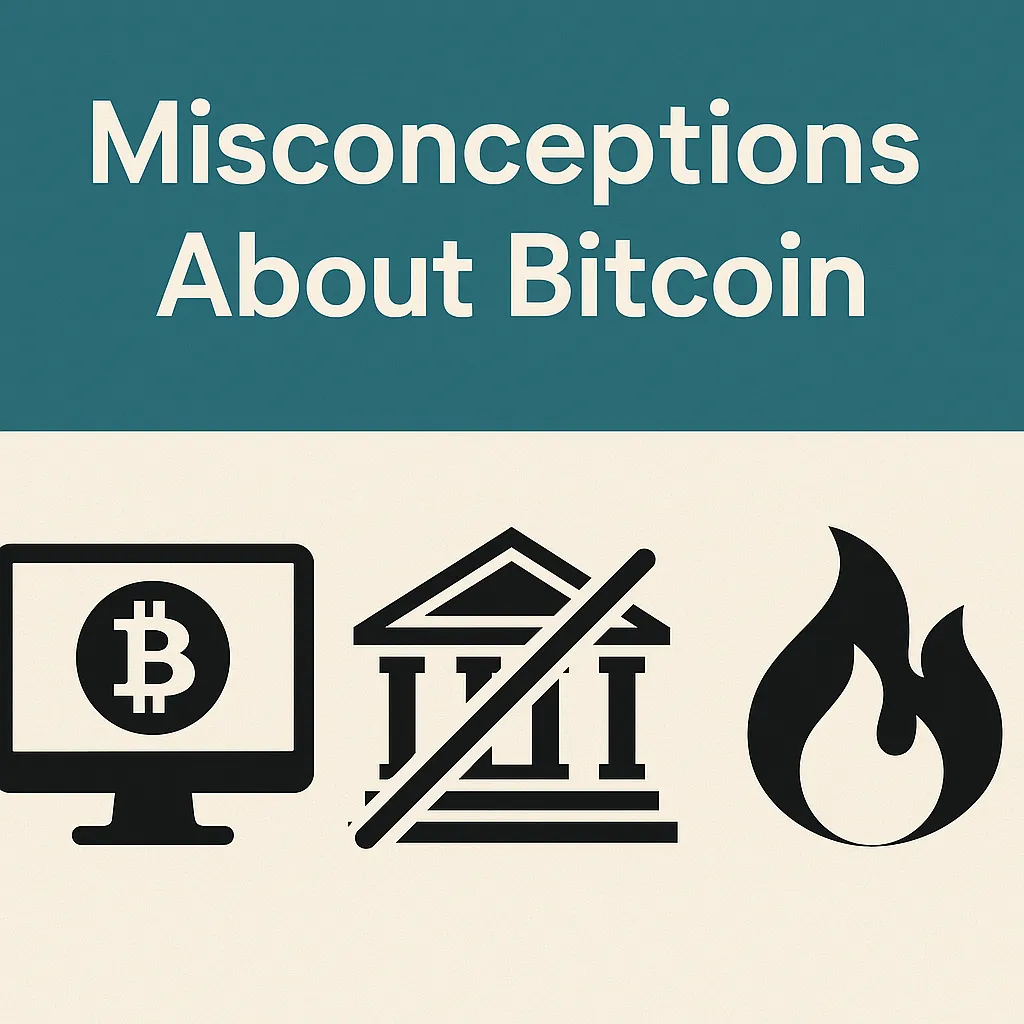
Lyn Alden on Misconceptions About Bitcoin
When a new technology challenges centuries of tradition, it’s bound to attract myths. Lyn Alden’s essay on Misconceptions About Bitcoin dissects the most common criticisms and explains why they fall apart under closer scrutiny.
“Bitcoin Has No Intrinsic Value”
One of the most common claims is that Bitcoin is “just numbers on a screen” with no inherent worth. This argument assumes that value must be tied to something physical—like gold’s shine or oil’s burnability. But as Lyn Alden points out, what gives something monetary value isn’t its physical characteristics; it’s the combination of scarcity, durability, divisibility, portability, and the trust society places in it as a medium of exchange.
Gold didn’t become money because it was pretty. Seashells, beads, and even cigarettes have served as money throughout history, not because they had intrinsic utility, but because they carried qualities that made them reliable units of account and stores of value in specific contexts. Bitcoin simply upgrades this long tradition into the digital realm.
What makes Bitcoin revolutionary is that, for the first time, we have a form of money that is both absolutely scarce (capped at 21 million) and infinitely portable (transferable anywhere in the world in minutes). It doesn’t degrade, it can’t be counterfeited, and its supply schedule is enforced by math rather than human decree. In short, Bitcoin takes the best monetary properties of gold and strips away its weaknesses—like being heavy, slow to transport, and costly to verify.
Calling Bitcoin “just numbers” misses the point. All money is, in some sense, an agreed-upon abstraction. The dollar in your wallet is a piece of paper, but it represents value because people believe and agree that it does. Bitcoin is the same idea, but it’s backed not by the whims of governments, but by code, cryptography, and global consensus. That makes it not a baseless fad, but a profound leap in how humans organize and preserve economic value.
“Governments Will Ban It”
Another frequent objection is that governments will never allow Bitcoin to succeed—that they’ll simply ban it out of existence if it becomes too disruptive. Lyn Alden approaches this with a clear distinction between regulating access points and shutting down the protocol itself.
Governments do have the power to regulate exchanges, custodians, and banks that interface with Bitcoin. They can impose tax rules, reporting requirements, or even outright restrictions on buying and selling through licensed platforms. But this doesn’t equate to banning Bitcoin itself. The network is decentralized—tens of thousands of nodes are running worldwide, each enforcing the same monetary rules. To stop Bitcoin entirely, every government on Earth would need to coordinate to shut down every node and mining machine simultaneously, and even then, it could just be reconstituted elsewhere.
Alden likens it to the internet: some nations attempt censorship, but information routes around blockages. The cost of isolation is high. Countries that embrace open access to the internet thrive in innovation, finance, and global influence, while those that wall themselves off stagnate. The same dynamic applies to Bitcoin. For a country, banning it is like choosing to ban the next generation of financial rails—it cuts off capital, discourages entrepreneurs, and drives innovation to friendlier jurisdictions.
What we’re seeing instead is a patchwork of approaches. Some governments, like El Salvador, are experimenting with Bitcoin as legal tender. Others are building regulatory frameworks to capture tax revenue while letting innovation happen. A handful attempt bans, but even there, peer-to-peer markets persist underground. The result? Bitcoin adapts, survives, and continues to spread, because its value proposition doesn’t depend on government approval.
The deeper point is this: Bitcoin’s resilience comes from its neutrality. It doesn’t care about borders, politics, or decrees. Just like governments couldn’t ban gold ownership forever—eventually it was legalized again in the U.S.—they can’t ban a decentralized digital protocol in the long run. At best, they can slow adoption locally, but the global network marches on.
“It Wastes Energy”
Perhaps the loudest criticism Bitcoin faces is that it “wastes” energy. Detractors claim that its proof-of-work system is environmentally destructive, burning through electricity for no productive purpose. Lyn Alden carefully unpacks why this framing is misleading and why the energy debate is far more nuanced.
First, it’s important to ask: what counts as waste? Every monetary system consumes energy. Gold mining requires enormous amounts of diesel fuel, excavation equipment, and refining processes. The banking system demands sprawling office buildings, data centers, ATM networks, and constant physical security. Fiat money, in other words, is far from energy-free. The question isn’t whether money uses energy—it’s whether the energy is justified by the security and trust the system provides.
Bitcoin’s proof-of-work isn’t arbitrary waste—it’s the very mechanism that secures the network. The energy expenditure makes it prohibitively expensive for attackers to rewrite history or double-spend transactions. In this sense, the electricity isn’t being “burned for nothing”; it’s the cost of anchoring digital value in unforgeable physical reality. Alden argues this tradeoff is not only valid but essential.
Second, Bitcoin miners gravitate toward the cheapest energy available, which often means stranded, wasted, or renewable sources. Hydroelectric dams with excess capacity, flared natural gas that would otherwise be burned into the atmosphere, and wind or solar generation with no local buyers all find new demand through mining. In places like Texas, miners even act as a flexible load: they ramp up consumption when electricity is abundant and shut down instantly during grid stress, helping stabilize the power system rather than destabilize it.
Finally, Alden points out that energy use should be judged in context. No one questions whether Christmas lights, YouTube cat videos, or heated swimming pools “deserve” their electricity. Yet Bitcoin, which secures trillions in value and provides financial access to millions shut out of the banking system, is constantly attacked for its footprint. When compared to the benefits it provides—censorship resistance, inflation protection, and a global settlement layer—its energy use is not waste but investment.
The takeaway is clear: Bitcoin doesn’t destroy energy, it redeploys it. It takes underutilized or wasted energy and transforms it into the world’s most secure monetary network. Far from being a drain, it may be one of the strongest incentives for building the resilient, renewable grids of the future.
The Bigger Picture
At the core of Alden’s argument is this: dismissing Bitcoin based on surface-level critiques ignores its role as an emergent monetary network. It solves real problems in our current financial system—debasement, censorship, and fragility. By challenging the myths, she shows why Bitcoin isn’t just surviving skepticism—it’s thriving because of it.
Her article can be found here: https://www.lynalden.com/misconceptions-about-bitcoin/
Shout out to BullishBTC.com for helping everyday people cut through the noise and find clarity in Bitcoin. See our site page specifically for Misconceptions:



